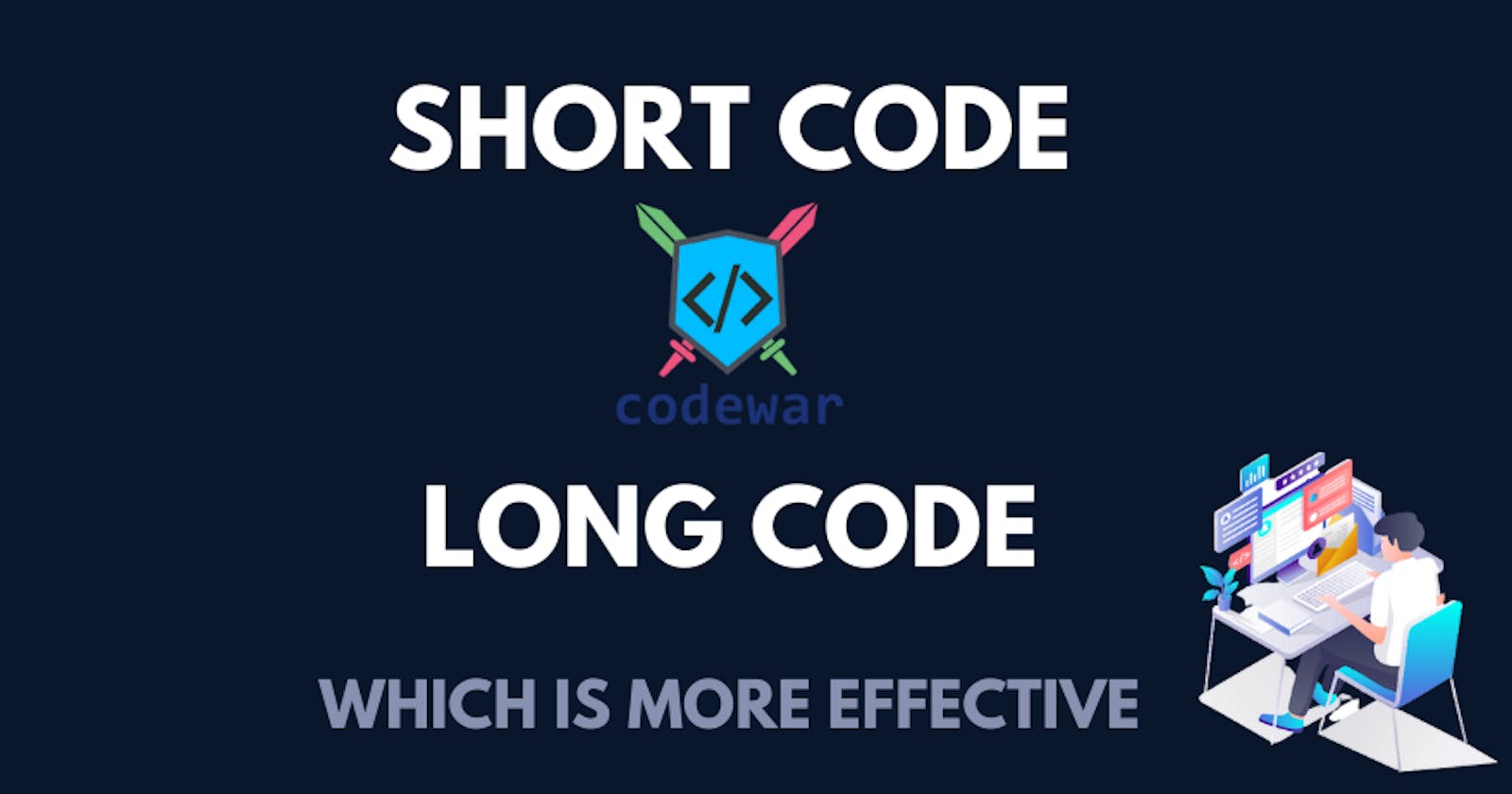As a developer, you may have faced the dilemma of choosing between writing short code or long code for a project. On one hand, short code is easier to write and may seem more efficient at first glance. On the other hand, long code is often more readable and easier to maintain in the long run. So, which is the better choice for your project?
To answer this question, let's take a look at the pros and cons of each approach.
Short code:
Pros:
Quicker to write
Takes up less space
May be faster to execute
Cons:
Harder to read and understand
More prone to errors
More difficult to maintain and update
Long code:
Pros:
Easier to read and understand
Less prone to errors
Easier to maintain and update
Cons:
Takes longer to write
Takes up more space
May be slower to execute
Now, let's consider a few code examples to see the differences between short and long code in action.
Example 1: Calculating the sum of a list of numbers
Short code:
Copy codedef sum_list(numbers):
return sum(numbers)
print(sum_list([1, 2, 3, 4, 5]))
Long code:
Copy codedef sum_list(numbers):
total = 0
for number in numbers:
total += number
return total
print(sum_list([1, 2, 3, 4, 5]))
In this example, the short code version uses the built-in sum() function to quickly calculate the sum of the numbers in the list. However, this code may be harder for someone unfamiliar with the sum() function to understand. In contrast, the long code version uses a loop to manually add each number in the list, making it more readable and easier to understand.
Example 2: Removing vowels from a string
Short code:
Copy codedef remove_vowels(string):
return "".join([char for char in string if char not in "aeiou"])
print(remove_vowels("hello world"))
Long code:
Copy codedef remove_vowels(string):
vowels = "aeiou"
result = ""
for char in string:
if char not in vowels:
result += char
return result
print(remove_vowels("hello world"))
In this example, the short code version uses a list comprehension to filter out vowels from the string and then joins the remaining characters into a new string. This code may be more efficient, but it may also be harder to understand for someone unfamiliar with list comprehensions. In contrast, the long code version uses a loop to check each character in the string and add it to a new string only if it is not a vowel. This code may be slower, but it is easier to understand and follow.
In conclusion, when deciding between short code vs long code, it's important to consider the specific needs of your project. If you need to write code quickly and efficiency is a top priority, short code may be the better choice. On the other hand, if readability and maintainability are more important, long code may be a better fit. Ultimately, the right choice will depend on the trade-offs you are willing to make and the specific requirements of your project.
"Are you looking for a quick and easy way to filter out numbers and letters from a string in Python? Check out my article on the topic! In it, i provided a step-by-step guide on how to accomplish this task using various techniques. Click here to read more!"
